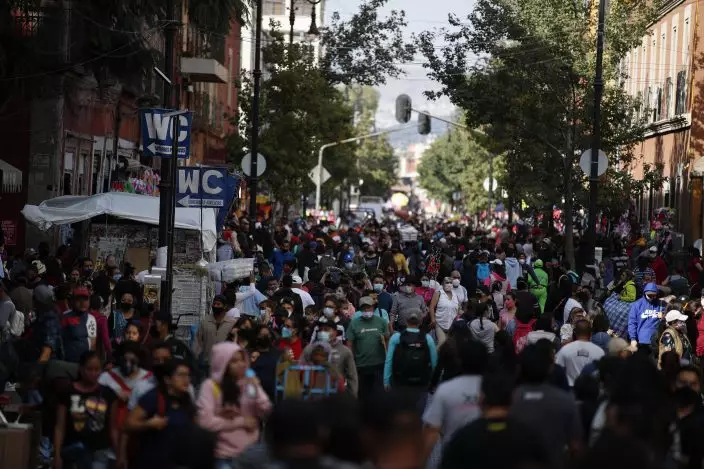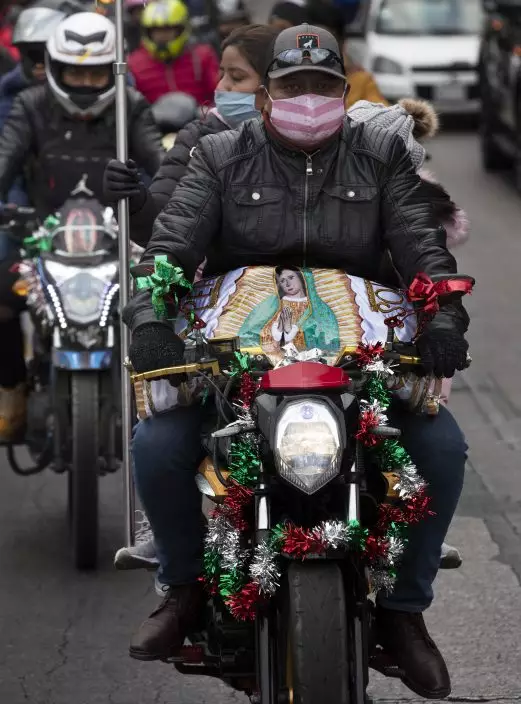Mexico plans to being vaccinating its people against COVID-19 at the end of the third week of December, starting with health workers, the government announced Tuesday.
President Andrés Manuel López Obrador said the vaccines will be “universal and free” — and also voluntary — and he hopes the full population will be vaccinated by the end of 2021.
Officials said that starting in February, those over 60 will receive vaccinations, followed by those over 50 in April and over 40 in May. They urged people with risk factors to get vaccinated first.

Shoppers, the vast majority wearing protective face masks, crowd a street in a commercial district of central Mexico City, Saturday, Dec. 5, 2020. With hospitals once again filling up with COVID-19 patients, Mexico City's mayor on Friday urged people to stay at home as much as possible and authorized checkpoints to limit the number of people entering the capital's colonial-era downtown at one time. (AP PhotoRebecca Blackwell)
The 67-year-old president himself said he would get vaccinated in February, along with his age group.
The government already has contracted for 34.4 million doses of the Pfizer-BioNTech vaccine and 250,000 of those are expected to arrive by Dec. 17.
The armed forces will distribute them to vaccination sites, initially in Mexico City and the northern border state of Coahuila.

Pilgrims with images of the Virgin of Guadalupe on their motorcycles ride towards the Basilica de Guadalupe, in Mexico City, Monday, Dec. 7, 2020. Even though the Catholic Church announced the closure of the Basilica for this year's pilgrimage due to the coronavirus pandemic, people are still arriving but have to stay outside the closed temple. (AP PhotoMarco Ugarte)
The government's point man on the pandemic, Assistant Secretary Hugo López-Gatell, said Mexico's health regulatory agency is expected to approve the vaccine on Dec. 11, a day after the U.S. Food and Drug Administration is expected to do so.
Britain was the first nation to approve the Pfizer-BioNTech vaccine and began its innoculation campaign on Monday.
López-Gatell said the pace of vaccination could be accelerated as more vaccines are approved and arrive from other sources. Mexico this week plans to sign a deal to purchase 35 million doses of the CanSino vaccine from China.
Mexico has reported 1.18 million confirmed infections with the new coronavirus and at least 110,074 deaths from COVID-19, though both are acknowledged to be undercounts.


